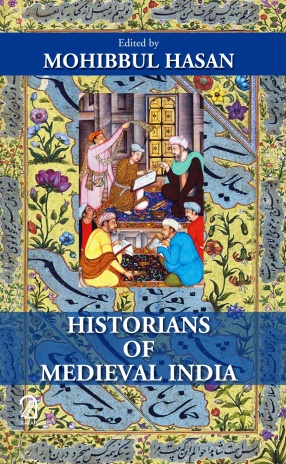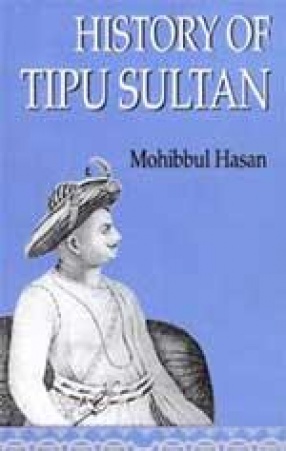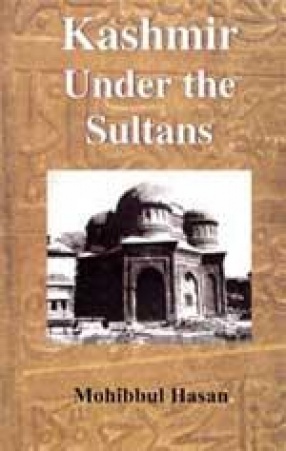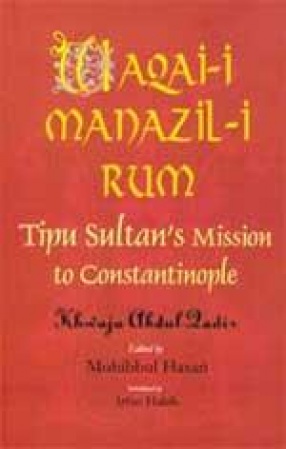Subtotal: $22.50

Subtotal: $22.50
Showing all 4 books




During medieval period of Indian history the historical literature generally consisted of dynastic and regional histories, biographies and memoirs. But the failure to assess and study them with reference to their author's social, cultural and religious backgrounds, methods, forms of expression, concept of history and the like has resulted in an incomplete and distorted picture of the times. The writings of the period bear testimony to the fat that the medieval ...

Waqai-I-Manazil-I-Rum, a diary of the embassy sent by Tipu Sultan to Constantinople in 1786, contains an account of the activities of the embassy from the time it left Seringapatam until its departure from Basra to Constantinople. It sheds light on Tipu Sultan’s commercial ambitions in the Persian Gulf and on certain aspects of his administration. It also describes the position of the Indian merchants in the Persian Gulf, the part they played in its economic ...

In the present work, an attempt has been made to give an accurate picture of Tipu Sultan by disengaging his personality from masses of fictions and distortions which have gathered round him. As practically the whole of Tipu’s life was taken up with fighting, the author has devoted considerable space to campaigns and battles. However, he has not ignored other aspects of his career. He has paid sufficient attention to the causes and results of wars, while ...

Professor Mohibbul Hasan’s Kashmir Under the Sultans has an intrinsic merit of lucidly introducing a reader to a subject that begins with the foundation of the Sultanate and ends with the conquest of Kashmir by Akbar. Its chief merit lies in encapsulating such political, social, economic and cultural activities of the period that exercised an indelible influence on the valley. During the Sultanate period, as Professor Hasan observes, Kashmir had achieved a high ...
